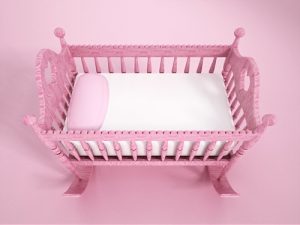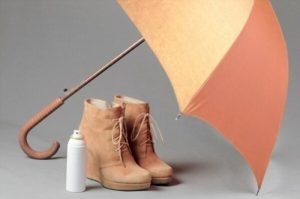We’ve all seen things with tags that say weatherproof or waterproof. Are they similar to each other? If they’re not, what do they mean?
In simple terms, weatherproof means when something can withstand extreme weather conditions including wind, snow, rain, and sunlight. On the other hand, waterproof means when water cannot travel from one side of the product to another.
Depending on the product and quality, these two terms can vary. Let’s take a deeper dive into the issue to learn more.
Weatherproof Vs Waterproof: What Do They Mean?
The words mean exactly as they sound. When something is weatherproof, you can expect it to perform well under different weather conditions. For instance, it may last longer when there’s wind, moisture, sunlight, or even snow.
Waterproof on the other will repel water to an extreme degree. It’s not similar to water repellent or water resistant. Even if you submerge something waterproof in the water, it shouldn’t get damaged. Not according to the definition anyway.
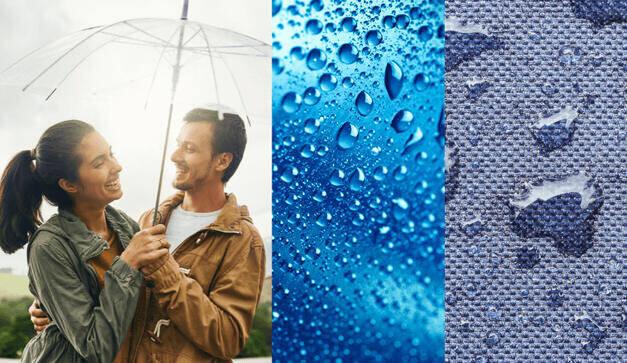
Weatherproof Vs Waterproof: 6 Differences
| Aspect | Weatherproof | Waterproof |
|---|---|---|
| Definition | Offers protection from sunlight, wind, and light rain. | Provides strong protection against water. |
| Relationship | May not necessarily be waterproof. | Can be both weatherproof and waterproof. |
| Features | Protects from sunlight, wind, and light rain. | Guards against heavy rain and water exposure. |
| Durability | Generally less durable; uses layers and coatings. | Typically more durable; waterproof materials. |
| Cost | Usually less expensive; depends on product type/brand. | Often more expensive due to waterproofing. |
| Breathability | Not highly breathable; less suitable for clothes/footwear. | Comparatively less breathable than weatherproof. |
| Examples | Bags, shoes, accessories, fabrics. | Boots, bags, clothing, flooring, etc. |
To understand these two terms with more clarity, let’s take a look at some basic differences between something that’s weatherproof and something that’s waterproof.
1. Relationship Between The Two Terms
One common misconception is the relationship between the terms weatherproof and waterproof. Something that’s waterproof may not necessarily be weatherproof. The same goes for weatherproof products.
It’s important to note that a product can be both weatherproof and waterproof. However, one feature does not guarantee the other.
2. Features
Waterproof products are excellent when you need strong protection against water. For instance, if we are talking about boots, you must have a pair of waterproof boots when it’s raining heavily.
Water-resistant boots will not protect your boots in heavy rain. On the other hand, weatherproof products are something that will come in handy when you are seeking protection from sunlight, wind, and light rain. For instance, a weatherproof umbrella will not only be durable in the rain but also in sunlight and wind.
3. Durability
In general, waterproof products are usually more durable than weatherproof products. The reason is that waterproof products are waterproof in feature as a whole. Which means the materials used for making waterproof products are waterproof.
Weatherproof products, on the other hand, use layers and protective coatings. So, once the coating is breached, the product does not stay weatherproof any more. For this reason, waterproof products are more durable.
4. Cost
As a general rule, waterproof options are always more expensive than weatherproof options. However, it entirely depends on what you are considering. For instance, it may not be similar for boots and fabrics. Besides, the brand plays an important role here too.
But most of the time, you can expect waterproof products to be more expensive. So, make sure to set your budget accordingly.
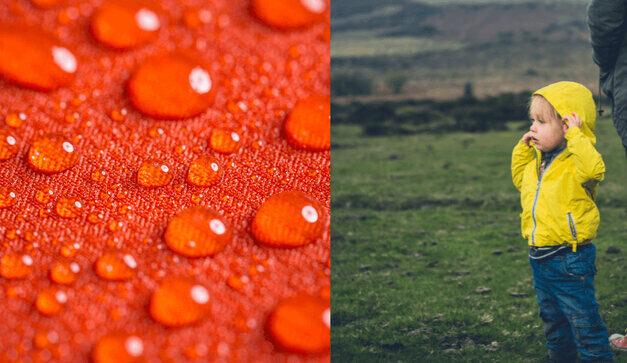
5. Breathability
Another important aspect to consider when differentiating weatherproof and waterproof is breathability. It may not be important for products like umbrellas. But when you’re considering shoes or clothes, it’s very important.
Weatherproof options are not that breathable either when you’re judging them individually. But when compared to waterproof options, weatherproof products are comparatively more breathable.
So, if breathability is something you are looking for in your clothes, boots, or bags, going for waterproof options may not be the best idea.
6. Examples
Another key difference between these two is not everything can be waterproof or weatherproof. For instance, you may not find a flooring option that’s weatherproof. Flooring options are always either water-resistant or waterproof.
The term weatherproof is mostly applicable to bags, shoes, accessories, and fabrics. Waterproof products, on the other hand, can include boots, bags, clothing, flooring, etc.
Weatherproof Vs Waterproof: Which One Is Better?
| Aspect | Weatherproof Option | Waterproof Option |
|---|---|---|
| Suitability Based on Location | Windy areas | Constant exposure to water/moisture |
| Example Product | Wind-resistant jacket | Raincoat or diving suit |
| Breathability | Generally more breathable | Can be less breathable |
| Indoor vs Outdoor Use | Suitable for indoor use | Suitable for outdoor, wet conditions |
| Protection Level | Protects from light rain, drizzle | Protects from heavy rain, submersion |
| Suitable Activities | Everyday use, light activities | Water-based activities, heavy rain |
| Considerations | May not be fully waterproof | Offers better water protection |
| Decision Factors | Wind-resistance, breathability | Water protection, activity type |
The first thing to consider when determining which one is a better choice is the product you are buying. Depending on several aspects, the suitability can be different. For instance, if you live somewhere windy and you’re considering a jacket, a weatherproof option might be more suitable for you compared to a waterproof option.
The key to deciding which one is more suitable for you is to evaluate the comparison points and match the option that suits you better. For instance, if you work somewhere indoors and looking for a breathable pair of shoes, a waterproof pair may not be a suitable option for you.
On the contrary, if you’re exposed to water and moisture constantly throughout the day, waterproof options will have no competitor in this matter.
As you can see, there is no fixed better option for you. The option changes depending on different aspects. So, make sure you’re taking your time to evaluate your necessities before spending a fair amount of money on anything.
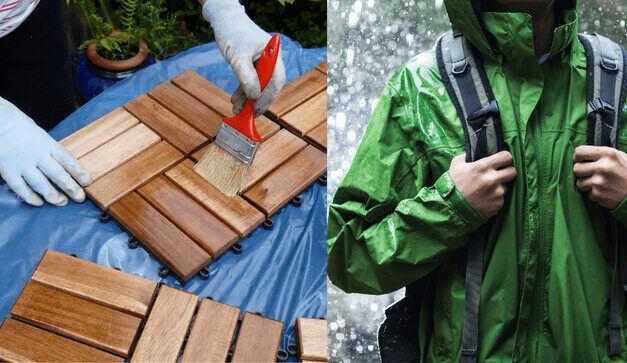
Water-Resistant And Water Repellent
While we are on the subject of those terms, let’s go through water-resistant and water repellent too. These two terms are nearly similar and almost interchangeable. But they are not similar to waterproof or weatherproof.
Water-resistant refers to when something can withstand water for a short period of time. These products usually have a coating, much like weatherproof products, to resist water. However, the resistance depends on how long you’re allowing the water to stay on the product.
If you leave water on water-resistant products for too long, they will get damaged. Once the upper layer is penetrated, the product becomes vulnerable to water and gets damaged.
Take water-resistant flooring for example. They may withstand splashes and spills. But if you leave the liquid on that surface for too long, it will seep inside and damage the core. As a result, the flooring will warp.
Accessories can be water-resistant too. But you cannot submerge them in the water like waterproof accessories. However, they will survive water splashes and spills for a short period.
So, it’s very important to identify the label of the product that you are buying. You can expect to buy something water-resistant and go swimming while wearing it. Learn the terminologies so that you can save your money, as well as the things you bought.
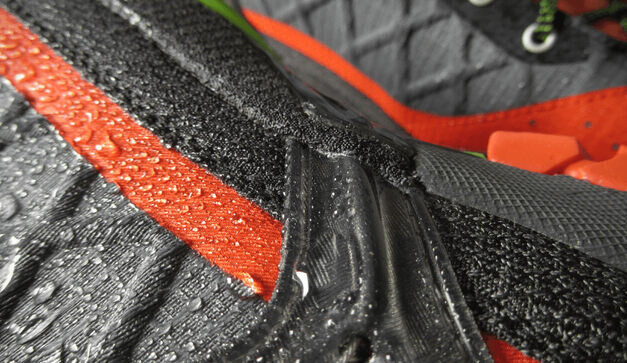
Comparison of Water-Resistant, Water Repellent, Waterproof, and Weatherproof Properties
| Property | Water-Resistant | Water Repellent | Waterproof | Weatherproof |
|---|---|---|---|---|
| Defination | Can withstand water for a short time | Repels water droplets | Can resist water submersion | Can withstand various weather elements |
| Coating | Has a coating to resist water | Treated to make water bead up | Often has specialized waterproof layer | Has advanced protection against weather |
| Duration of Exposure | Short period, not for prolonged exposure | Brief exposure to light rain or moisture | Prolonged exposure and submersion | Suitable for extended exposure |
| Vulnerability | Damaged if exposed for too long | Effective against light moisture | Resists penetration of water | Offers resistance to weather effects |
| Examples | Water-resistant flooring, accessories | Water-repellent jackets, treated shoes | Diving suits, waterproof watches | Outdoor jackets, all-weather shoes |
| Suitable Activities | Withstand splashes and spills briefly | Light rain or drizzle, not full submersion | Water activities, swimming, diving | Outdoor activities in varying weather |
| Submersion | Cannot be submerged in water | Not suitable for prolonged water exposure | Can be submerged without damage | Withstands exposure to weather elements |
| Important Note | Liquid left too long can cause damage | Provides resistance to light moisture | Designed for full water immersion | Offers overall protection against weather |
Final Words
The more you familiarize yourself with these terms, the smarter you can buy. Differentiating weatherproof vs waterproof will save you money and time. Next time, when a seller is trying to buy something labeled as weatherproof as waterproof or vice versa, you will know what to do.
Figure out what you want and what features you expect, then put your money in the right place. It’s not as much about choosing the better option but choosing the better option for you.
References
- https://www.camelmountain.com/blogs/stories/what-s-the-difference-between-waterproof-and-weatherproof
- https://www.quora.com/What-is-the-difference-between-water-resistant-weatherproof-and-waterproof
- https://ablecanvas.com/2013/08/is-your-fabric-waterproof-or-weatherproof/

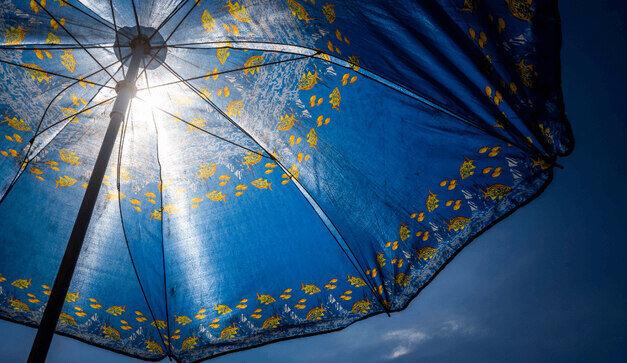
![Read more about the article How To Make Waterproof Stickers [All Methods Included]](https://theconsumertips.com/wp-content/uploads/2022/09/How-To-Make-Waterproof-Stickers-300x140.jpg)
